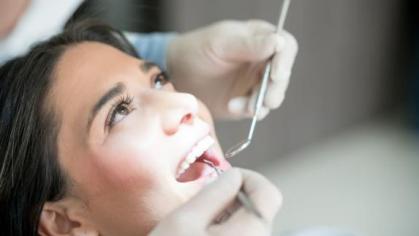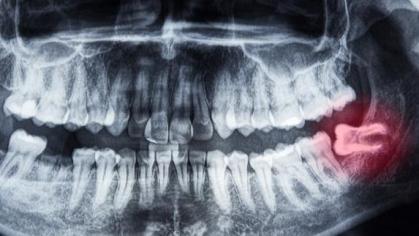How Pregnancy Affects Your Dental Health
It’s no secret that your body is going through a lot of changes during pregnancy – after all, you are growing a new human life! You’ve been warned about the hormonal fluctuations, swollen ankles, and strange cravings that hit when you least expect it. But have you given any thought to how pregnancy affects your mouth and teeth? If not, Rutgers Health University Dental Associates can help you.
Damage From Morning Sickness And Upset Stomach
Whether you’re battling morning sickness or feeling nauseous all the time, vomiting is one of the most common side effects of pregnancy. This is because hormones weaken the muscle that keeps food in the stomach, leading to gastric reflux and vomiting. When this happens, tooth enamel has the potential to become damaged from volatile acids escaping the stomach. In severe cases, some teeth even decay. However, there are a few things you can do to keep this damage at bay:
- Do not brush your teeth immediately after vomiting to avoid damage caused by scrubbing stomach acids against the tooth enamel
- Rinse your mouth with water after vomiting, followed by a mouthwash with fluoride
- Wait at least one hour to brush your teeth
Gum Problems
Increased levels of hormones during pregnancy may lead to mood swings, but they are also responsible for gum problems in some women. The most common issues include:
- Gingivitis: The inflammation and bleeding of the gums, which typically occurs in the second trimester
- Periodontal disease: A chronic gum infection that can be aggravated by pregnancy
- Pyogenic granuloma: This condition causes the gums to become enlarged in a localized area and bleed easily
If you notice any gum problems developing during your pregnancy, see your dentist at Rutgers Health University Dental Associates immediately. You may require a professional cleaning to alleviate symptoms, and in rare cases, an excision. You can also try switching to a softer toothbrush to decrease your gums’ sensitivity to brushing.
Too Nauseous To Brush
For some pregnant women, it seems that nearly anything can bring on a bout of nausea – even brushing their teeth. If this is the case, moms-to-be may brush less thoroughly or often to avoid the feeling of nausea. However, this can lead to an increased risk of tooth decay, as it is vital to brush and floss regularly. Our dentists recommend brushing slowly, using a small toothbrush, and concentrating on your breathing to prevent retching.
Craving Sweets
Not all pregnant women crave pickles, which is a common misconception. In fact, many consistently desire desserts and sugary drinks, which can lead to an increased risk of tooth decay. Try opting for fruits, like strawberries, blueberries, and apples, to satisfy your sweet tooth instead of candy. And when you’re done snacking, be sure to rinse with water and brush your teeth well.
Maintain Good Oral Health During Pregnancy
In general, we recommend that you see your dentist every six months for a checkup. However, if you’re concerned about dental health and pregnancy, be sure to schedule a visit right away. Your dentist will identify any pregnancy-related oral health concerns and provide treatments that will keep your teeth and mouth healthy during this time. For more information, contact Rutgers Health University Dental Associates today at 973-972-2444 in Newark, NJ, or 732-235-5050 in New Brunswick.



